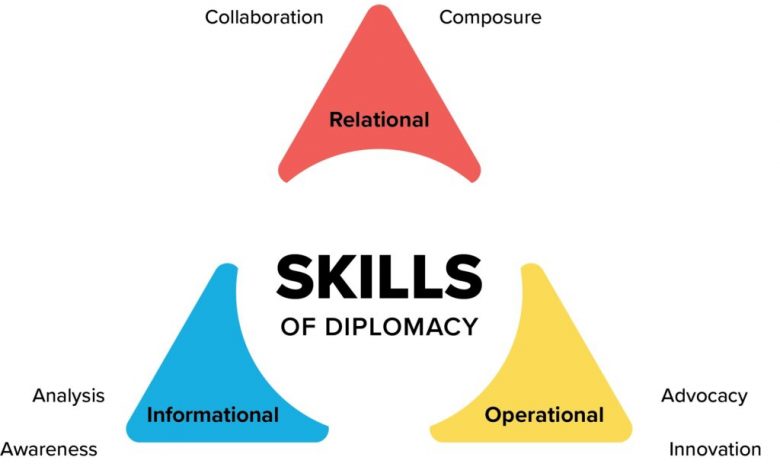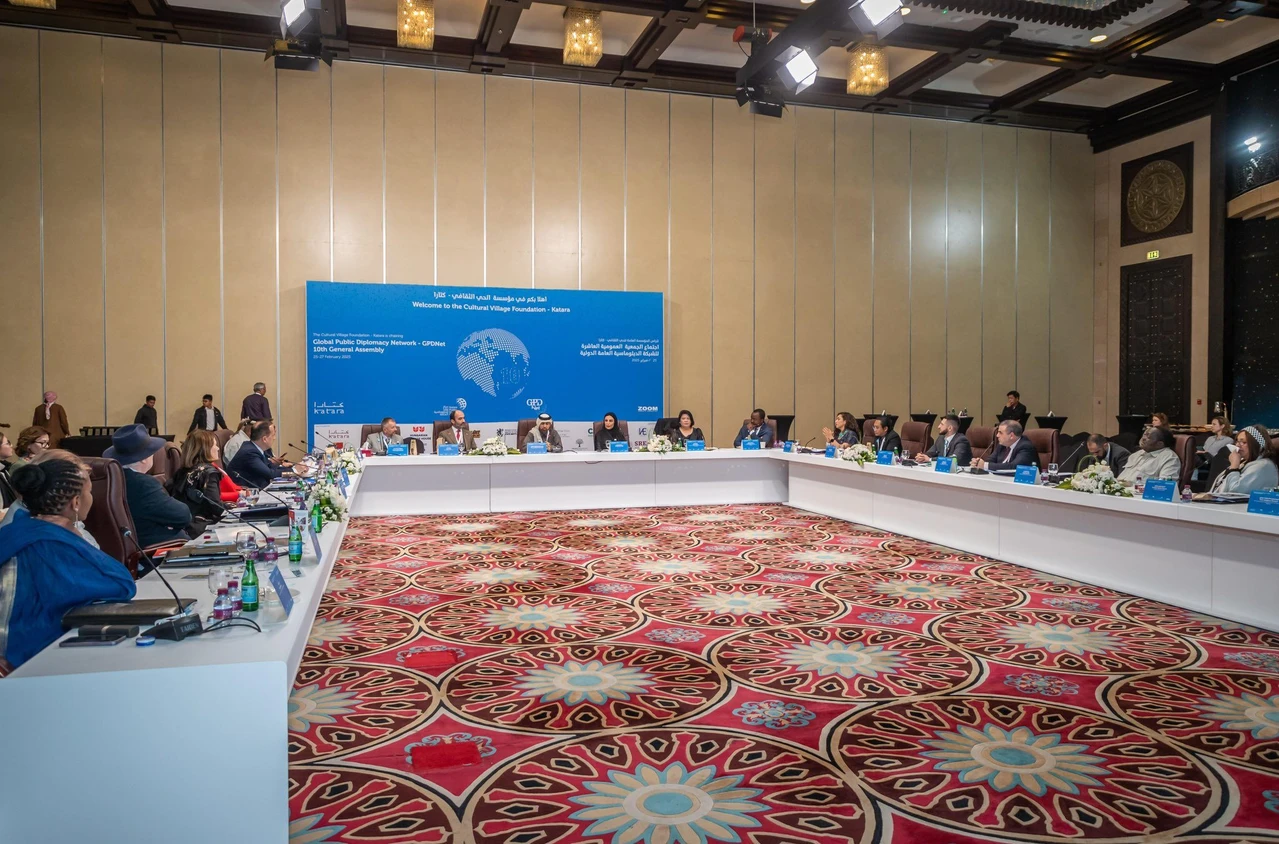The 9 Skills of Diplomacy

The 9 Skills of Diplomacy
https://diplomacy.state.gov/wp-content/uploads/2022/02/Diplomacy-Skills-1024×742.jpg
1024
742
https://secure.gravatar.com/avatar/77d297fd34b4f1cb20d77ddb5ccfdcde?s=96&d=mm&r=g
How do diplomats go about their work?
At the National Museum of American Diplomacy, we’ve identified 9 skills diplomats need to do their jobs effectively.
While these skills are applicable to many other careers, they are essential for diplomats.
American diplomats embody all of these skills to protect the interests of the American people, particularly those related to security and economic prosperity.
Diagram courtesy of the National Museum of American Diplomacy
What are Diplomacy Skills?
These 9 skills of diplomacy fall into three categories: informational, relational, and operational.
information literacy This is how a diplomat learns and starts thinking about how to approach a situation or crisis.
- analysis: Study and think critically about situations.
- awareness: Respect different cultures and customs. Recognize when situations and circumstances change and adapt to accommodate that change. Be aware of what they don’t know or understand.
- communication: Articulate your position and listen openly to the positions of others. Identify where interests overlap. Confirm positions and use clear and appropriate language to avoid misunderstandings.
ability to relate are how a diplomat works with his team and colleagues.
- guide: Take action and make decisions based on available information. Keep the big picture in mind. Take action to improve the overall position of your country or organization and fill knowledge gaps.
- cooperation: Integrate the ideas of others and find common ground. Take cues from others when formulating answers and making suggestions.
- serenity: Work professionally with others and deal calmly with the different attitudes and behavior of interlocutors, difficult partners and opponents.
Operational Skills are how a diplomat executes a plan.
- management: Leverage the skills and strengths of your team members. Know what tools and resources are available to achieve the goals and agenda of their country or organization.
- innovation: Formulate alternatives and react flexibly to unforeseen circumstances.
- advocacy: Speak on behalf of the country or organization they represent and pursue that organization’s goals and mission. Advocacy also speaks out for and with others whose voices may not be heard.
What are examples of diplomacy skills in action?
Throughout history we find countless examples of diplomats displaying these skills. Discover how various diplomats are practicing and putting each of these skills into action in the following blog posts, exhibition stories and video clips.
analysis
awareness
communication
guide
cooperation
serenity
management
innovation
advocacy
You and the skills of diplomacy
These skills are practiced and acquired over a lifetime. You will find that you are already using some of these skills in your daily life. Do you discuss differences with your roommates about cleaning common areas? Do you keep your cool in tense conversations with classmates with whom you may disagree? In what other ways have you practiced diplomacy?
Diplomacy is a practice not reserved only for ambassadors. Everyone has the ability to engage in this art form, especially through the 9 Skills of Diplomacy.



